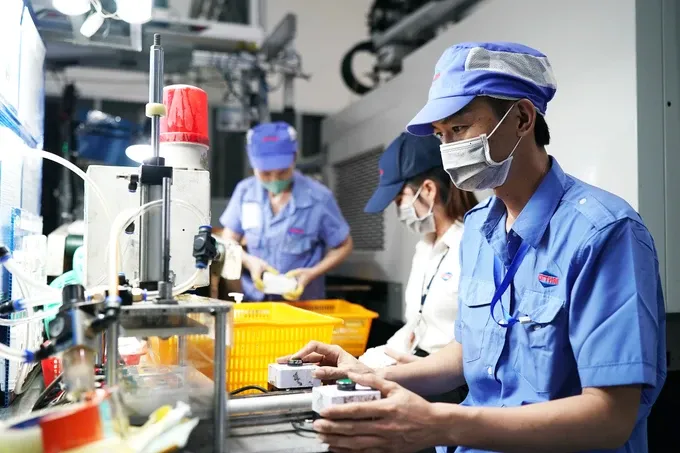
In a report on Vietnam's economic and trade situation, the Ministry of Industry and Trade forecast that 2025 is the year which will witness a significant global shifts in FDI flows.
The Ministry of Industry and Trade has indicated that, amid rising strategic competition among major economies, there is a noticeable trend towards restructuring supply chains and exploring new investment markets. Vietnam is viewed as a highly appealing destination due to its favorable labor conditions, conducive business environment, and ongoing policy reform initiatives.
However, the Ministry also underscored that this opportunity could be lost if Vietnam fails to enhance labor quality, upgrade infrastructure, and establish a transparent and stable business climate. Investors may easily redirect their focus to alternative markets like Indonesia and India, which are actively vying for new foreign direct investment.
The Ministry of Industry and Trade also commented that global FDI capital flows are tending to shift away from China to emerging economies such as Vietnam, Indonesia and India. The primary factors driving this trend include the rising trade protectionism measures implemented by Western nations, particularly the United States and the European Union, alongside the internal economic challenges faced by China, such as the real estate crisis. As a result, international companies are seeking investment opportunities in regions that offer competitive costs, rapidly expanding domestic markets, and supportive policy environments.
Not only is the amount of FDI capital increasing, but there is also a qualitative change. Foreign investment flows are prioritizing high-tech industries such as artificial intelligence (AI), blockchain, fintech and biotechnology. Green and sustainable sectors, including renewable energy, circular economy and carbon-reduction technology, are also attracting special attention.
Deputy Minister of Industry and Trade Phan Thi Thang commented that this is an important opportunity for Vietnam to transform its development model, attracting projects with high added value, instead of focusing only on labor-intensive industries as before. The shift in FDI capital flows from labor-intensive sectors to high-tech and sustainable development highlights an immediate necessity for innovation in the development model.
Therefore, depending exclusively on tax incentives or low-cost labor will no longer be sufficiently appealing. Vietnam must prioritize the establishment of a robust supporting industrial ecosystem, encourage research and development (R&D), and enhance the legal framework to instill confidence in foreign companies considering long-term investments.
The Ministry of Industry and Trade informed that the Government has been taking steps to make most of this opportunity by improving infrastructure, accelerating the digitalization process, cutting administrative procedures and creating preferential policies to attract large investors. The implementation of the Government’s Resolution No. 01/NQ-CP and Resolution No. 02/NQ-CP will help improve the business environment, enhance national competitiveness and strengthen the linkage between domestic enterprises and the FDI sector.
Thus, with the right strategy, Vietnam can not only take advantage of the new wave of FDI but also move up the global value chain, reduce dependence on low-value manufacturing industries and gradually move towards a more high-tech, green and sustainable economy.
























